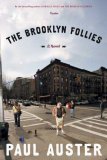Summary | Excerpt | Reading Guide | Reviews | Beyond the Book | Readalikes | Genres & Themes | Author Bio

Critics' Opinion:
Readers' Opinion:
First Published:
Dec 2005, 320 pages
Paperback:
Oct 2006, 320 pages
Those are just some examples. I wrote dozens of such stories in
the first two months, but even though I did my best to keep the tone frivolous
and light, I discovered that it wasn't always possible. Everyone is subject to
black moods, and I confess that there were times when I succumbed to bouts of
loneliness and dejection. I had spent the bulk of my working life in the
business of death, and I had probably heard too many grim stories to stop myself
from thinking about them when my spirits were low. All the people I had visited
over the years, all the policies I had sold, all the dread and desperation I'd
been made privy to while talking to my clients. Eventually, I added another box
to my assemblage. I labeled it "Cruel Destinies," and the first story I put in
there was about a man named Jonas Weinberg. I had sold him a million-dollar
universal life policy in 1976, an extremely large sum for the time. I remember
that he had just celebrated his sixtieth birthday, was a doctor of internal
medicine affiliated with Columbia-Presbyterian Hospital, and spoke English with
a faint German accent. Selling life insurance is not a passionless affair, and a
good agent has to be able to hold his own in what can often turn into difficult,
tortuous discussions with his clients. The prospect of death inevitably turns
one's thoughts to serious matters, and even if a part of the job is only about
money, it also concerns the gravest metaphysical questions. What is the point of
life? How much longer will I live? How can I protect the people I love after I'm
gone? Because of his profession, Dr. Weinberg had a keen sense of the frailty of
human existence, of how little it takes to remove our names from the book of the
living. We met in his apartment on Central Park West, and once I had talked him
through the pros and cons of the various policies available to him, he began to
reminisce about his past. He had been born in Berlin in 1916, he told me, and
after his father had been killed in the trenches of World War I, he had been
raised by his actress mother, the only child of a fiercely independent and
sometimes obstreperous woman who had never shown the slightest inclination to
remarry. If I am not reading too much into his comments, I believe Dr. Weinberg
was hinting at the fact that his mother preferred women to men, and in the
chaotic years of the Weimar Republic, she must have flaunted that preference
quite openly. In contrast to the headstrong Frau Weinberg, the young Jonas was a
quiet, bookish boy who excelled at his studies and dreamed of becoming a
scientist or a doctor. He was seventeen when Hitler took control of the
government, and within months his mother was making preparations to get him out
of Germany. Relatives of his father's lived in New York, and they agreed to take
him in. He left in the spring of 1934, but his mother, who had already proved
her alertness to the impending dangers for non-Aryans of the Third Reich,
stubbornly rejected the opportunity to leave herself. Her family had been
Germans for hundreds of years, she told her son, and she'd be damned if she
allowed some two-bit tyrant to chase her into exile. Come hell or high water,
she was determined to stick it out.
By some miracle, she did. Dr. Weinberg offered few details (it's
possible he never learned the full story himself), but his mother was apparently
helped by a group of Gentile friends at various critical junctures, and by 1938
or 1939 she had managed to obtain a set of false identity papers. She radically
altered her appearance—not hard for an actress who specialized in eccentric
character roles—and under her new Christian name she wrangled herself a job as a
bookkeeper for a dry goods store in a small town outside Hamburg, disguised as a
frumpy, bespectacled blonde. When the war ended in the spring of 1945, she
hadn't seen her son in eleven years. Jonas Weinberg was in his late twenties by
then, a full-fledged doctor completing his residency at Bellevue Hospital, and
the moment he found out that his mother had survived the war, he began making
arrangements for her to come visit him in America.
From The Brooklyn Follies by Paul Auster. Copyright Paul Auster 2005. All rights reserved. Reproduced by permission of the publisher, Henry Holt.





The Funeral Cryer by Wenyan Lu
Debut novelist Wenyan Lu brings us this witty yet profound story about one woman's midlife reawakening in contemporary rural China.
Your guide toexceptional books
BookBrowse seeks out and recommends the best in contemporary fiction and nonfiction—books that not only engage and entertain but also deepen our understanding of ourselves and the world around us.